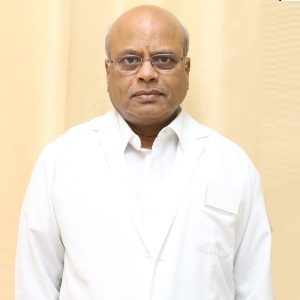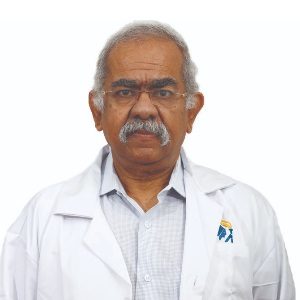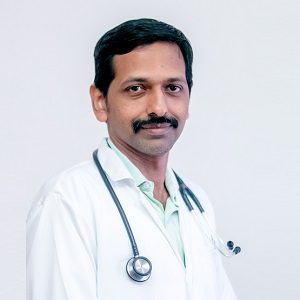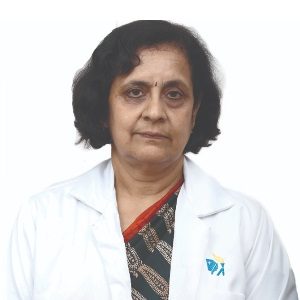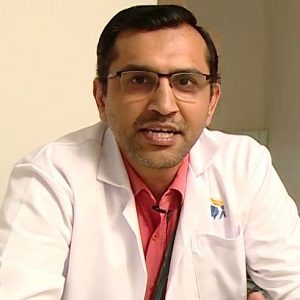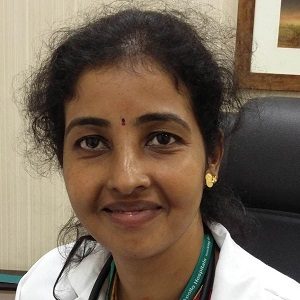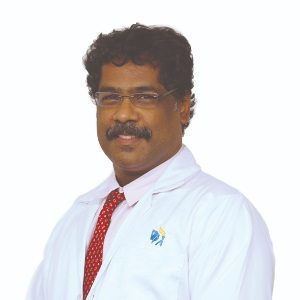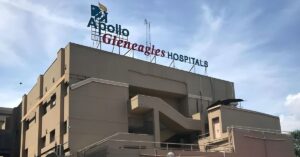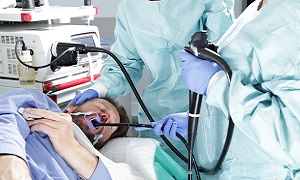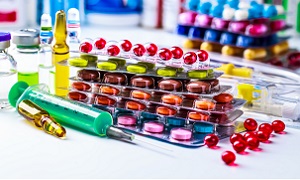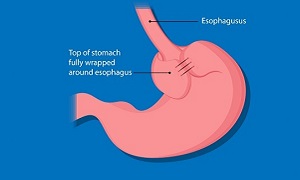Best Doctors in India for GERD Treatment
- Surgical Gastroenterologist, Chennai, India
- Over 27 years’ experience
Profile Highlights:
- Dr. Surendran R is an experienced gastroenterologist from Chennai, Tamil Nadu.
- He has been rewarded for his contributions to the field several times. He received The Best Doctor award from the Tamil Nadu government (2002) in his name.
- Being a gastroenterologist, he specializes in treating patients with problems such as Bowel Obstruction, Pancreatic diseases, Esophagus disorders, Fistula treatment, etc.
- Gastroenterologist and GI Medicine Specialist, Chennai, India
- Over 23 years’ experience
Profile Highlights:
- Dr. Revathy Shanmugam is an experienced Gastroenterologist in Tamil Nadu, having an experience of 23 years in the management of GI disorders, Training & Teaching.
- She is highly skilled in the services like Liver Disease Treatment and Inflammatory Bowel Disease (IBD) Treatment.
- She has published various scholarly works in many National & International Publications of Medical Gastroenterology.
- Gastroenterologist and GI Medicine Specialist, Chennai, India
- Over 32 years’ experience
Profile Highlights:
- Dr. Hariharan Muthuswamy is a veteran Gastroenterologist and Hepatologist in India with 22 years of experience (specialist).
- Dr. Muthuswamy treated his patients with Non-Surgical Piles treatment, Liver Disease Treatment, Hepatitis E, Hepatitis A Treatment and Hepatitis B Treatment, Hemorrhoids Treatment, Colonoscopy, Stomach, and Intestinal Treatments, etc.
- He has a special interest in Capsule Endoscopy, Therapeutic Endoscopy, GERD, and Irritable Bowel Syndrome (IBS).
- Gastroenterologist and GI Medicine Specialist, Chennai, India
- Over 32 years’ experience
Profile Highlights:
- Dr. Mohan A T is a veteran GI medicine specialist in India with an experience of 32 years.
- Dr. Mohan, an alumnus of Madras University, is the Co-Ordinator of the Indian Society of Enteral and Parenteral Nutrition.
- He is an expert in treating Gastritis, acidity, Ulcerative Colitis, and many other Intestinal and bowel-related Treatments. In addition to these, he offers Colonoscopy, Gastroscopy, and Endoscopy.
- Gastroenterologist and GI Medicine Specialist, Chennai, India
- Over 15 years’ experience
Profile Highlights:
- Dr. Piramanayagam P is one of the young Gastroenterologists in India, having an experience of 15 years in the field.
- The doctor offer services like Gall Bladder (Biliary) Stone treatment, IBS treatment, Acidity Treatment, Endoscopy, and stomach and intestine dysfunction.
- He published many review articles and books under his name.
- Gastroenterologist and GI Medicine Specialist, Chennai, India
- Over 39 years’ experience
Profile Highlights:
- Dr. Sarojini Parameswaran is one of the renowned Gastroenterologist with an overall experience of 39 years.
- Dr. Parameswaran is brilliant and quick with diagnosis. She has 22 years of specialist experience.
- Gastroenterologist and GI Medicine Specialist, Chennai, India
- Over 24 years’ experience
Profile Highlights:
- Dr. Seshadri Venkatesh P is a well-known Gastroenterologist in India, having 24 years of experience in Stomach and Intestine disorders.
- Dr. Seshadri acquired proficiency in managing Bladder Cancer surgery, hemorrhoids, Irritable Bowel Syndrome (IBS) Treatment, etc.
- He holds membership in Tamil Nadu Medical Council.
- Gastroenterologist and GI Medicine Specialist, Chennai, India
- Over 40 years’ experience
Profile Highlights:
- Dr. Usha Srinivas is a Gastroenterologist in India with an experience of 40+ years in GI in medicine and academics.
- Patients visit her for consultation and treatment of abdominal pain, Gall Bladder (Biliary) Stone, Gastroenteritis, Jaundice, Colonoscopy, Steatosis, Constipation Treatment, Hepatitis C Treatment, Hepatitis E Treatment, Hemorrhoids Treatment, Piles Treatment (Non-Surgical), Gastritis Treatment, Ulcerative Colitis Treatment, and others.
- Gastroenterologist and GI Medicine Specialist, Chennai, India
- Over 18 years’ experience
Profile Highlights:
- Dr. Preethi M is one of the best gastroenterologists in India, with 18 years of expertise.
- Dr. Preethi received many awards for her contribution to the field.
- She offers consultation for Irritable Bowel Syndrome (IBS), Hemorrhoids, Endoscopy, female problems, and other gastrointestinal issues.
- Gastroenterologist and GI Medicine Specialist, Chennai, India
- Over 23 years’ experience
Profile Highlights:
- Dr. Ubal Dhus is a GI specialist doctor in South India who is proficiently managing Gastroenterological disorders for the past 23 years.
- He acquired his medical degree from Madras University, Chennai, and served people with Hemorrhoids Treatment, and Irritable Bowel Syndrome (IBS) Treatment.
Best Hospitals in India for GERD Treatment
Venkateshwar Hospital, Dwarka, New Delhi
- City: New Delhi, India
Hospital Highlights:
- State-of-the-art technology and devoted healthcare professionals have been brought together under one roof at Venkateshwar Hospital to provide genuine medical care. The hospital’s professionals work together as a team to deliver the best possible treatment to their patients, using the most sophisticated equipment and information technology.
- Venkateshwar Hospital’s mission is to attain global excellence in healthcare by employing evidence-based, ethical clinical practices and cutting-edge technology by a team of highly skilled experts.
MGM Healthcare, Chennai
- City: Chennai, India
Hospital Highlights:
- Located in Chennai, India, MGM Healthcare is a top multispecialty hospital that provides all medical services under one roof.
- Since its founding in 2019, MGM Healthcare has quickly become a leading national referral centre, creating several innovative flagship initiatives.
- MGM Healthcare combines next-generation medical and digital technologies to provide better patient results.
- With 12 centres of excellence, more than 400 inpatient beds, 100 intensive care unit beds, and 24/7 emergency care, MGM Healthcare leaves no chance in redefining the patient experience in Chennai.
- MGM Healthcare boasts 250+ expert doctors across 30+ departments, including Cardiology, Pulmonology, Neurology, Obstetrics & Gynaecology, and more.
- They house 12 specialized Centres of Excellence, including Neurosciences, Orthopaedics, and Multi-Organ Transplantation.
- Their team of doctors, nurses, and paramedics works together to give every patient individualized treatment.
Apollo Hospitals, India
- City: India
Hospital Highlights:
- Apollo Hospitals is a private healthcare group in India, with its headquarters based in Chennai. Established in 1983 by Dr. Prathap C. Reddy, the group offers a wide range of medical treatments and services across various specialties.
- It is renowned for emphasizing innovation and utilizing cutting-edge medical technologies into patient treatment.
- Known as India’s first corporate hospital, Apollo Hospitals is often credited for pioneering the private healthcare revolution in the country.
- With clinics and hospitals located all throughout India, Apollo Hospitals is a nationwide healthcare organization. Its presence can also be found in foreign countries.
- Preventive health examinations, medical and surgical treatment, and diagnostic centres are just a few of the services that the Apollo group provides.
- The group has several centres of expertise, including Cardiac Sciences, Neurosciences, Orthopedics, Emergency Care, Cancer Care, and Organ Transplantation.
Apollo Gleneagles Hospitals, Kolkata
- City: Kolkata, India
Hospital Highlights:
- Established in 2003, Apollo Gleneagles Hospitals is a 750-bed multispecialty tertiary care hospital situated in Kolkata.
- With 33 Centres of Excellence and more than 50 specialties, Apollo Gleneagles Hospitals, Kolkata is capable of handling all sorts of patients.
- This tertiary care hospital, which is a 100% subsidiary of Apollo Hospitals Enterprise Ltd., India, is regarded as one of Kolkata’s top hospitals.
- The facility is a complete blend of cutting-edge technology, state-of-the-art infrastructure, and genuine hospitality.
- Focusing on numerous specialties, the hospital provides all-inclusive medical treatments supported by cutting-edge technology and a staff of highly qualified medical specialists.
- Patients across the globe come to Apollo Gleneagles Hospitals Kolkata for their treatment. Moreover, international patients receive full attention and assistance for their treatment and are provided with a hassle free experience.
- Apollo Gleneagles Hospitals, Kolkata is the only hospital in Eastern India to hold the Joint Commission International (JCI) certificate.
- It is also the only hospital in Kolkata to hold the NABL accreditation in six different categories, which includes Clinical Biochemistry, Clinical Pathology, Hematology & Immunohematology, Microbiology & Serology, and Histopathology & Cytopathology.
- Furthermore, Apollo Gleneagles Hospitals, Kolkata is known for performing the first ever Reverse Shoulder Prosthesis Replacement in East India.
Apollo Hospitals International Limited, Ahmedabad
- City: India
Hospital Highlights:
- As a member of the Apollo Hospitals Group, Apollo Hospitals International Limited, Ahmedabad is one of the most popular and sought-after medical facilities in Gujarat.
- Through its 6 Centres of Excellence and various affiliated branches, which cover all specialties and subspecialties, the hospital provides the most advanced clinical services.
- Since its inception in 2003, the hospital has been providing each patient with the most up-to-date medical equipment and state-of-the-art technology.
- With more than 150 successful organ transplants, including liver and renal transplants, the facility has been able to build a strong and extensive organ transplant program.
- In addition to performing 600 surgeries and caring for over 1800 patients on an IP basis, the hospital sees more than 18,000 patients on average in the outpatient department.
- With one of the biggest cardiology teams in the area, the hospital provides state-of-the-art regional care treatment in Cardiac Sciences.
- Additionally, the hospital offers a broad range of Neuro Interventional techniques to help stroke patients recover more quickly.
GERD
Gastroesophageal Reflux Disease also known as GERD, is a digestive disorder which is known to affect the lower esophageal sphincter, the ring of muscle between the esophagus and the stomach. It occurs when the stomach acid frequently flows back into the tube which connects the mouth and the stomach. The backwash might irritate the lining of the esophagus. Many people are known to experience this ailment quite often.
How severe this ailment is, depends on LES dysfunction as well as the type and amount of fluid which is brought up from the stomach and the neutralizing effect of saliva also.
Causes of GERD
Occasional acid reflux which is known to be quite common, often occurs as a result of overeating, lying down after eating or consuming some kinds of particular foods. However, GERD is recurrent acid reflux and can occur in people of all ages and it usually has other causes as well as risk factors. It can also cause even more serious complications.
GERD starts to occur when the sphincter located at the bottom of the esophagus becomes weak or it opens when it is not supposed to. GERD is more commonly seen among people who are:
- Obese or overweight due to increased pressure on their abdomen
- Pregnant, due to the same increased pressure
- Taking certain medications; this may include medications for asthma, sedatives, antidepressants, etc.
- Smoking or being exposed to second-hand smoke
Symptoms of GERD
GERD has multiple signs and symptoms, which include:
- A burning sensation in the chest usually after eating, which can get worse at night
- Pain in the chest
- Difficulty in swallowing
- Regurgitation of food or sour liquid
- Sensing a lump in the throat
If you are having nighttime acid reflux, then you may also experience disrupted sleep, chronic cough, laryngitis or asthma.
Diagnosis of GERD
Your doctor will be able to diagnose GERD using physical examination and history of your signs and symptoms. To confirm a diagnosis of GERD or to check for complications, your doctor may recommend:
Upper endoscopy
During upper endoscopy, your doctor will be inserting a thin, flexible tube that is equipped with a light as well as a camera. It is sent down your throat in order to examine the insides of your esophagus and stomach. When reflux is present, test results are often normal, but an endoscopy can detect inflammation of the esophagus or any other such complications. An endoscopy has other uses as well, such as collecting a tissue sample to be tested for complications such as Barrett’s esophagus.
Ambulatory acid probe test
During ambulatory acid probe test, a monitor is placed in your esophagus in order to identify when and for how long stomach acid regurgitates there. The mentor is connected to a small computer that you can strap over your shoulder or even wear around your waist.
Esophageal manometry
Esophageal manometry test is meant to measure the rhythmic muscle contractions in the esophagus when you swallow. Esophageal manometry can also be used to measure the coordination and the force exerted by the esophagus muscles.
X-ray of your upper digestive system
X-rays are taken after one drinks a chalky liquid which coats and fills the inside lining of one’s digestive tract. This coating will allow your doctor to see a silhouette of your stomach, esophagus, as well as your upper intestine. You might also be asked to swallow a barium pill which can help you in diagnosing a narrowing of the esophagus that might interfere with swallowing.
Treatment options for GERD
It is likely that your doctor will recommend that you first try lifestyle modifications and over-the-counter medications. If you are not experiencing relief within a few weeks, you might be recommended prescription medication or surgery.
Prescription medication
There are several options-
Antacids to neutralize stomach acid: Antacids, such as Mylanta or Rolaids can help you by providing quick relief. However, antacids alone will not heal an inflamed esophagus which has been damaged by stomach acid. Overuse of some antacids might cause side effects like diarrhea or even kidney problems.
Medications for reducing acid production: These kinds of medications which are known as H-2 receptor blockers include cimetidine, famotidine as well as nizatidine. However, H-2 receptor blockers don’t act as quickly as antacids. However, they are able to provide longer relief and might decrease acid production from the stomach up to 12 hours. Stronger versions are also available which you can obtain through prescription.
Medications for blocking acid production and healing esophagus: Also known as proton pump inhibitors, are stronger kind of acid blockers than H-2 receptor blockers and also allow time for damaged esophageal tissue to heal. Over-the-counter proton pump inhibitors can include lansoprazole and omeprazole.
Prescription-strength treatments for GERD include-
- Prescription-strength H-2-receptor blockers: This includes prescription-strength famotidine and nizatidine. Though these medications are usually well-tolerated, long-term use can lead to a slight increase in deficiency of vitamin B-12.
- Medication for strengthening the lower esophageal: Baclofen might help in easing GERD by decreasing the frequency of relaxations of the lower esophageal sphincter. However, there might be side effects which can include nausea or fatigue.
- Prescription-strength proton pump inhibitors: These include esomeprazole, lansoprazole, omeprazole, pantoprazole, dexlansoprazole and rabeprazole. It is generally well-tolerated but these medications might lead to diarrhea, nausea, headache as well as deficiency of vitamin B-12. Chronic use can also lead to hip fracture.
Surgery and Other Options
Though GERD can be controlled using medications, people can opt for surgery, if medications don’t help or if one wishes to avoid long-term use of medications. Your doctor will recommend:
Fundoplication
In Fundoplication, the surgeon will wrap the top of the stomach around the lower esophageal sphincter, in order to tighten the muscle as well as prevent reflux. Fundoplication is done usually with a minimally invasive procedure. The wrapping of the top part of the stomach may be partial or complete.
LINX Device
This procedure involves a ring of tiny magnetic beads which is wrapped around the junction of the esophagus and the stomach. The magnetic attraction between the beads is strong enough to keep the junction to refluxing acid, but at the same time, weak enough to allow the food to pass through. Through minimally invasive surgery, the LINX device can be implanted quite easily.
Transoral incisionless fundoplication
Transoral incisionless fundoplication is a new form of procedure, which involves tightening the lower esophageal sphincter by creating a partial wrap around the lower esophagus with the help of polypropylene fasteners. This procedure is performed through the mouth with a device which is called an endoscope and it doesn’t require any surgical incision. Its advantage is that the recovery time is quick and the tolerance is high. If you are having a large hiatal hernia, this procedure can’t be performed alone. However, it might be possible if this procedure is combined with laparoscopic hiatal hernia repair.
Risk Factors
There are certain conditions that can increase your risk of having GERD. They include:
- Obesity
- Pregnancy
- Connective tissue disorders
- Delayed stomach emptying
- Bulging at the top of the stomach
There are several factors which can aggravate acid reflux and these include:
- Smoking
- Consuming large meals, especially late at night
- Drinking certain beverages, like alcohol or coffee
- Take medications like aspirin
Complications of GERD
If it is left untreated, GERD can worsen into other conditions, such as-
- Esophagitis: This is a form of inflammation of the esophagus.
- Esophageal stricture: In this condition, the esophagus is seen to become narrow, which makes it difficult to eat and swallow
- Barrett’s esophagus: In this condition, the esophagus can change into cells that are similar to the lining of the intestine. This might eventually develop into cancer.
- Respiratory problems: One might sometimes breathe stomach acid into the lungs and this can cause a range of problems, which can include chest congestion, hoarseness, laryngitis, asthma or pneumonia.

